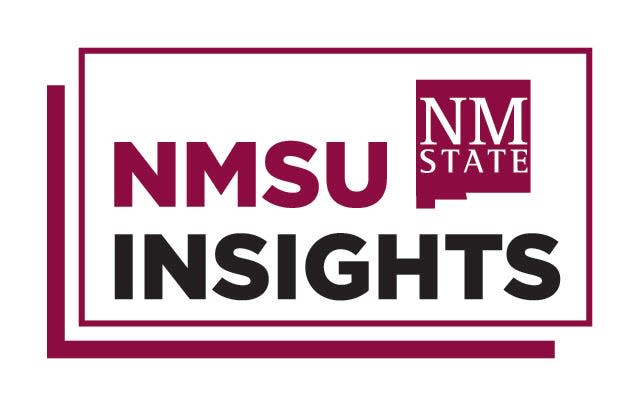NMSU dean advocates for cultural responsiveness to improve student retention
In the wake of the pandemic and development of online teaching models, universities across the country are looking for new ways to reach different audiences and retain students through to graduation. One component has been missing in those discussions: cultural responsiveness.
The process of cultural responsiveness in education attempts to address equity gaps by using our students’ cultural knowledge as a scaffolding on which to build concepts of a specific curriculum. They start from what they know, their cultural experience, and build on that to learn what is being taught.
Curriculum is not just a black box we can throw at our students, it should integrate our students’ culture, their backgrounds, their identities in what we teach. We talk a lot about retention of students in higher education but it’s important to remind ourselves of our humanity. We retain students who feel they belong. An important factor for students’ sense of belonging is recognizing themselves as part of what they learn.

Recognizing the culture of our students is at the foundation of the educational practices that the College of Arts and Sciences at New Mexico State University is creating – as demonstrated by several new initiatives that have been launched in recent months.
A grant from “Every Learner Everywhere” has provided the tools to allow two of our faculty to re-envision a foundational communication course that impacts virtually every student who attends NMSU. Gabriela Morales and Dae Romero worked closely together to redesign the Introduction to Communication course to reflect a tailored engagement approach for better learning experiences and more equitable outcomes for all of our students. Another grant from the National Science Foundation, that I have the fortune to co-lead, is promoting the creation of state-wide teacher professional development programs focused on promoting culturally responsive pedagogy in the teaching of computer science.
Recognizing the culture of our students is important to student retention. When we embed the culture of our students into what goes on in our classrooms, in the field and in the labs, we create a meaningful connection with what is being taught. This concept is very much tied to the land-grant mission as well as Provost Alan Shoho’s priorities regarding student success and retention.
There is a lot of evidence that if we make sure that what we teach and how we teach it represents what our students believe in, that our students will feel that they belong and will be motivated to continue their studies by recognizing how their courses will be useful to them. For example, there is substantial literature that shows that students from rural communities tend to gravitate to disciplines where they find an opportunity to contribute back to their communities. If we can somehow embed that cultural desire to give back in what we teach our students in computer science, for example, it’s more likely that many of our students from traditionally underrepresented groups may come see the usefulness of studying computer science, or similar disciplines, and feel that they belong to these fields by seeing how they may use what they learn to contribute to their communities.
I strongly believe cultural responsiveness also can play a major role in broadening participation in disciplines where we have an underrepresentation of women and people of color. In computer science, for example, there is a severe gender underrepresentation (only 21% of the workforce identifies as women) and an even more severe lack of diversity in terms of race and ethnicity. We have seen how cultural responsiveness can help to change that.
Numerous studies point to increased responsiveness and skills adoption in courses where students considered their culture to be of value to the university. When their cultural background was incorporated with the topics, students identified with the subjects they studied, which accelerated the learning process.

Culturally responsive teaching methods and practices incorporate students’ cultural identities and lived experiences into the classroom as tools for effective instruction. These approaches build on the knowledge of traditionally marginalized communities, helping all students, in particular students of color, to be empowered as lifelong learners and critical thinkers.
NMSU is not only a Hispanic-Serving Institution but New Mexico’s land-grant institution, serving the entire population of the state with the goal of improving lives. We understand New Mexico culture and by working to incorporate our diverse students’ cultural values into our curriculum, we can serve not only our students’ educational needs but also invest in the broader needs of our communities across New Mexico.
Enrico Pontelli is the dean of the College of Arts and Sciences at New Mexico State University. He can be reached at arts_sci@nmsu.edu.
This article originally appeared on Las Cruces Sun-News: NMSU dean advocates for cultural responsiveness to improve student retention

